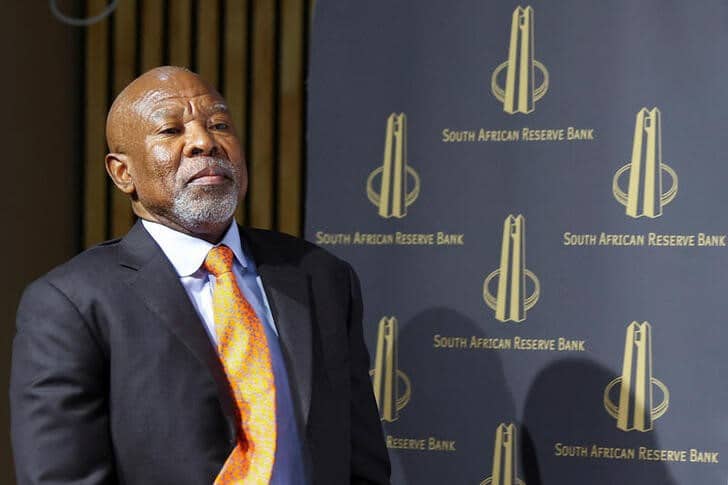
South Africa’s central bank governor Lesetja Kganyago says the country’s inflation targeting regime is out of date and might be inhibiting faster growth and making the economy less competitive.
While the country’s 25-year-old inflation targeting framework had helped lower interest rates from above 20 percent in 2000 to 7.5% now and helped reduce macroeconomic volatility, Kganyago said a fresh look was needed in line with other developing economies.
`’In this respect, the South African target is now rather dated, reducing our competitiveness and opportunity to generate faster and more sustainable growth,’’ Kganyago told the bank’s biennial conference in Cape Town.
South Africa’s newly established democratic government was one of the earliest adopters of the inflation targeting regime in 2000 when it was set at between 3 and 6 percent. Under Kganyago’s tenure, the SARB has focused its monetary policy on keeping inflation at the mid-point of 4.5 percent, and argued it should be lowered to around 3 percent.
Growth in Africa’s biggest economy has been stuck around 1 percent for the past decade as the country struggled with power shortages and corruption during the rule of former President Jacob Zuma who was accused of allowing a wealthy Indian family to control state institutions in what was generally referred to as ‘state capture’.
President Cyril Ramaphosa’s administration has since set a target of lifting economic growth to around 3 percent in the medium term after launching reforms under its Operation Vulindlela programme which helped end debilitating power shortages last year. Momentum was further maintained by the formation of the Government of National Unity after last year’s elections.
Kganyago said a session at the conference will tackle the question of what would be an optimal inflation target for South Africa in the context of what he called the country’s structural rigidities.
‘’Open discussions like these are important for how we think about the trajectory for global macroeconomic policy over the medium term, and what that means for the path of inflation targeting within the South African context,’’ he said.
Under South Africa’s constitution the inflation target is set by the Minister of Finance Enoch Godongwana who last October said he was not yet convinced of the merits of adjusting it though teams from the central bank and the National Treasury have started discussions on the subject.

